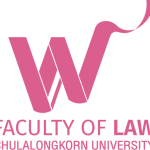1. The Legal Aid Centre
Executives
Associate Professor Orabhund Panuspatthna
Director
Contact
Room 806, 8th Floor, Debdvaravati Building,
Faculty of Law, Chulalongkorn University
- Telephone 0-2218-2017 (internal: 520)
- Direct Number for Legal Advice 0-2218-2066
- Fax 0-2218-2017 (internal: 520)
- E-mail legalaidcenter@yahoo.com
History
The work of the Faculty of Law, Chulalongkorn University, extends beyond academic and legal research, to include the dissemination of legal knowledge and the provision of legal assistance to the public, which has been continuing for over 20 years. During the deanship of Associate Professor Dr. Surakiat Sathirathai (his academic position at the time), the Legal Aid Centre was established in order to be the body responsible for tasks relating to the provision of legal advice to the public. The Centre formed part of the Faculty of Law, Chulalongkorn University, and the first Director was Associate Professor Tongthong Chandransu, who was tasked with representing the Centre in various affairs and was also in charge of all the Centre’s responsibilities. Lecturer Orabhand Panuspatthna (her academic position at the time) was appointed Deputy Director, and was tasked with carrying out the responsibilities assigned by the Director and assisting the Director with the executive, academic, and operational work, with the aim to disseminate legal knowledge and provide legal assistance to the public. Lecturer Manit Jumpa (his academic position at the time) was appointed Assistant Director in charge of assisting with the works of the Centre. From 1st October B.E. 2535 (1992), the Legal Aid Centre was therefore formally established as part of the Faculty of Law, Chulalongkorn University. To this day, the Centre has continued to discharge its tasks of disseminating legal knowledge and providing legal assistance to the public.
Objectives
- Disseminate legal knowledge to the public in order to equip them with knowledge and understanding of their rights and responsibilities.
- Provide legal assistance, recommendation and advice to the public, whilst being the central body responsible for overseeing and coordinating legal knowledge and recommendations.
- Provide legal aid services to the public and collaborate with academics, organisations and institutions, in both the public and private sectors, domestic and international, which share similar goals.
Operation
The Legal Aid Centre’s operation concerns the dissemination of legal advice to the public and cooperation between academics, organisations and institutions both in the public and private sectors, domestic and international, which share similar goals. In providing the assistance to the public, considered a highly important task of the Centre, the responsibilities may be divided into 2 categories, namely:
1. Legal Advice Services
The remit of the Centre’s work on the provision of legal advice is to provide assistance to the public in the form of recommendations, advice, and answers to specific questions posed by the public who contacted the Centre by telephone, post, email, or in person (Monday – Friday, 8.00-17.00).
2. Dissemination of Legal Knowledge
Apart from the legal advice service, the Centre understands that the knowledge of the law will enable the public to protect themselves against being taken advantage of. Moreover, if the public are equipped with the understanding of the law, they would be able to correctly and lawfully solve any legal problem that may arise. This would be highly beneficial for the public.
The Centre arranges for the dissemination of legal knowledge in two manners as follows:
2.1 Dissemination of Legal Knowledge via Mass Media
It is widely accepted that today’s means of communication are faster and much more convenient than the traditional means. Moreover, the mass media have occupied a highly important role in the society. The Centre therefore recognises the importance of the use of the mass media in disseminating legal knowledge directly to each household, given its wide reach to every corner of the country. If legal knowledge can be successfully disseminated by means of the mass media, the wider audience should be able to access this information which will benefit the people in general.
The Legal Aid Centre therefore has been operating the radio programme entitled “NitiMiti” on Chulalongkorn University Radio Station FM 101.5 MHz, every Wednesday 10.05-10.30 (rerun on the following Sunday, 11.05-11.30) in order to disseminate legal knowledge to the public. Experts are invited to the programme to answer questions and provide analysis on important legal problems.
2.2 Dissemination of Legal Knowledge in General
Law is the body of rules of the state, enforceable upon the people for the purpose of maintaining public order; however, a large number of people, especially in rural areas, lack access to legal knowledge on the laws applicable to them, as well as their rights and responsibilities. Accordingly, the Centre has organised projects to help disseminate legal knowledge to those in rural areas during the breaks in March and October. These projects, taking place twice a year for approximately 10 days each time, accept application from law students who are interested in disseminating legal knowledge to the public. The projects also enable the students to apply the knowledge they gained in the classroom to help those less fortunate in society. This would also allow them to pursue self-development.
For these reasons, the Legal Aid Centre organises bi-annual legal aid volunteering projects in rural areas, usually held during the academic breaks in March and October. The project allows law students to offer legal assistance to the under-privileged, under careful supervision of faculty members. The aim of the project is to encourage students to apply their legal knowledge for the benefit of the wider society and to achieve self-development through volunteering works. The standard structure of the projects starts with identifying a community in need of legal advice, surveying the local area and gathering relevant information and holding a conference meeting prior to the actual date to discuss the problems and potential solutions. On the actual dates of the project, the students, closely supervised by faculty members, give basic legal talks and assist in individual problem-solving.
2. Research Centre for Law and Development
Executives
Associate Professor Dr. Pareena Srivanit (Dean)
Director
Contact
Room 805, 8th Floor, Debdhvaravati Building,
Faculty of Law, Chulalongkorn Unviersity
Telephone: 0-2218-2017 (internal 204), 0-2218-2025
Objectives
- Conduct studies and research projects on laws which act as obstacles to the country’s economic and social development, and propose new laws which should be introduced.
- Disseminate the results of the studies and research projects and recommend both general and specific solutions to institutions, both in the public and private sectors, as well as the public.
- Act as a central hub for academic cooperation in studying and researching on the topics of law and development between institutions and academics, in both the public and private sectors, domestic and international, and between universities.
- Act as a centre for Applied Interdisciplinary Research between law and other subjects.
Operation
The Centre has divided its work into inter-disciplinary projects in order to study and research into relevant problems. These projects are: Project on Legal Structure and Development, Project on Social, Humanitarian and Labour Law, Project on Agricultural, Manufacturing and International Trade Law, Project on Laws concerning National Resources, Environment and Rural Development, Project on Laws concerning Financial Institutions, and Project on Tax Law.
The Centre operates with the premise of cooperation at international level, with both the public and private sectors, and other academic institution, on the basis of neutrality and interdisciplinary research. The Centre’s approach is flexible, efficient and effective.


